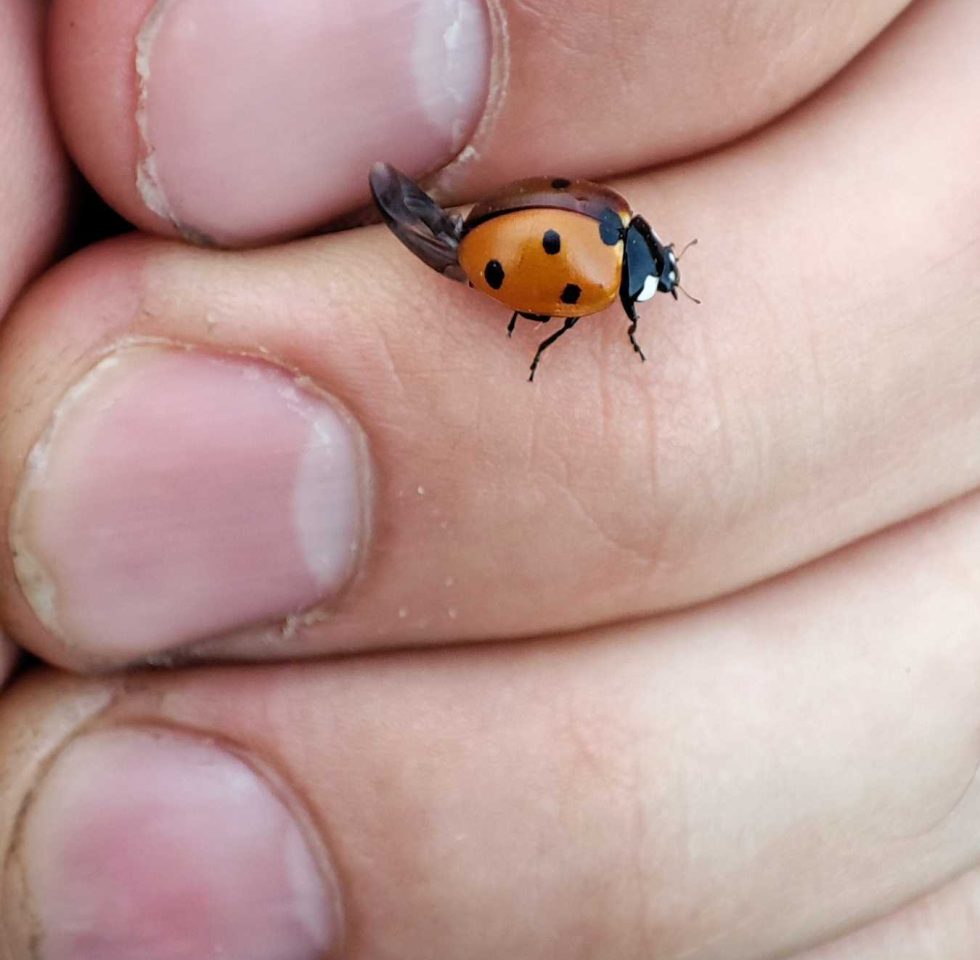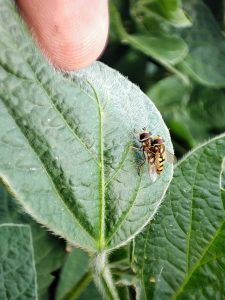Njamito Goes Fairtrade for Cocoa and Vanilla
March 31, 2025Njamito is now Fairtrade certified for cocoa and vanilla! Here’s what that means for farmers, the planet, and the values behind our meal-in-a-bottle.
Read articleHow often were your picnics visited by wasps? Too often? Well, while having a wasp-free picnic is easier, it’s bad news for what we eat.

How often were your picnics and beer gardens visited by wasps? Too often, right? You set yourself up for the perfect alfresco dining, a drink in the garden, or an ice cream by the beach, and then they come – uninvited visitors that spoil it all.
No one likes their picnic plagued with wasps, and of course we could name other seriously annoying and disliked insects, but they are crucial for our environment and for keeping our wild and cultivated plants growing. While having a wasp-free picnic is certainly a pleasant idea, it’s bad news for the quality and quantity of our food.
Cherries, apples, cranberries, melons, almonds, broccoli, and blueberries – their existence depends on insects that pollinate fruits, vegetables, oils, and nuts among others. In fact, close to 75 percent of the world’s crops of fruits and seeds for human consumption depend, at least in part, on pollinators. But, the number of species, as well as the overall amount of animals that are key to agriculture, is in alarming decline.
A U.N. assessment conducted in 2019 found that half a million insect species are under threat of extinction, some in the coming decades. And the loss of species is not the only problem. The number of insects has also decreased. Today, that number is 82% smaller than it was 27 years ago. This means that the remaining ones have to perform all of their environmental tasks. Would you like to replace 82% of your colleagues?
We can’t afford to lose more bugs!
More than one third of agricultural land depends on pollinators, yet agriculture is one of the biggest threats to biodiversity. It is estimated that land use change is responsible for 30 percent of global biodiversity decline.
In Europe, human activity has shaped biodiversity ever since the spread of agriculture and animal husbandry over 5,000 years ago. The agricultural and industrial revolutions led to dramatic changes in land use, the intensification of agriculture and urbanization.
Many traditional agricultural practices that helped to maintain biodiversity-rich landscapes were abandoned for the sake of efficiency and increased production. In addition, the development of artificial fertilizers and pesticides over the past 70 years and the introduction of invasive species did not help maintain the necessary balance in nature.
The bad news is that we are losing pollinators at a time when we need more pollination, because we need more food for the world’s growing population that recently hit a record of 8 billion people. The urgency to “save the wasps” is evident.

The good news is that insects can recover fast if given a chance. If we improve their environment, they will continue to help the growth of quality food for us and future generations. Reinventing some key agricultural practices is a huge and important step.
It is vital to introduce ecologically-based practices across the whole food supply chain. Sustainable agricultural practices include serious limits in pesticide usage. There are also other practices that enable insects to continue providing their vital ecosystem services, from farm clustering and land-use planning, to climate-smart species and crop cycles adapted to local conditions, to name just a few.
LoginEKO’s agroecologists have been busy (as bees) setting up buffer zones around our plots that in time become home to those bugs our crops need most. We have already successfully installed honey bees on our fields, but are aiming to attract more pollinating insects, especially solitary bees that are crucial for pollination of crops like buckwheat.
When insects are allowed to perform their pollination tasks, they can additionally provide us with pest control in return. Wasps, for example, are part of nature’s team of pest controllers. They are natural enemies of other (even more annoying) insects and can help us keep our lettuces whole and tomatoes aphid-free, without the use of pesticides.
We assume you probably wouldn’t miss wasps at your picnics too much. (Ok, we admit, we wouldn’t either.). But, the disappearance of any species could have irreversible consequences for our planet. And though we don’t know all of them, we know enough not to want to experience them. So, next time you want to swat a wasp from your picnic blanket, remember how vital it is for you to be able to put all your favourite foods on the table. So, even if you don’t like wasps, respect the biodiversity of our planet because you like cherries or almonds or tomatoes. And you’d want your children to keep eating them too.
***
Sources:
Njamito is now Fairtrade certified for cocoa and vanilla! Here’s what that means for farmers, the planet, and the values behind our meal-in-a-bottle.
Read articleIdealism met reality as we launched our meal-in-a-bottle, Njamito. After 100.000 bottles sold, here’s what we learned about organic food and market adaptation.
Read articleWith organic seeds in short supply, we launched our own organic seed production journey to secure sustainable farming practices.
Read article